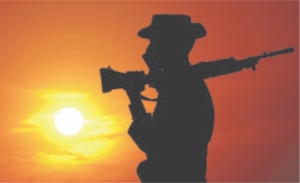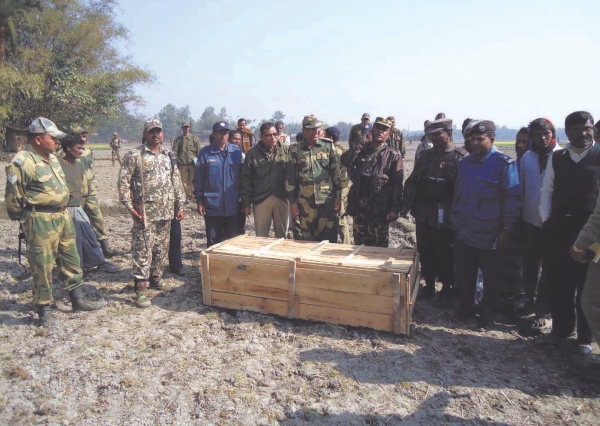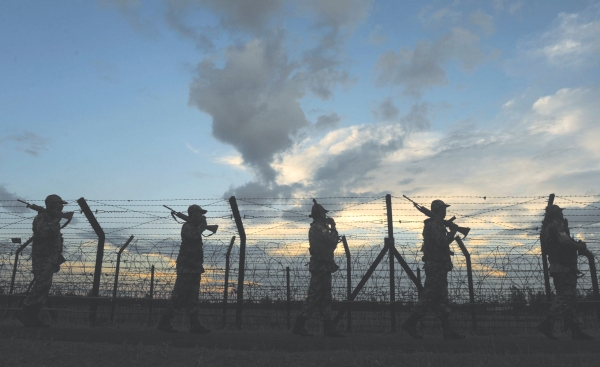| Home - Back Issues - The Team - Contact Us |
 |
| Volume 11 |Issue 13| March 30, 2012 | |
|
|
Reflections The Thorn in the Friendship Probir Kumar Sarker Millions of Bangladeshis in home and abroad on March 16 greeted the national cricket team for bringing them joy after beating India in the Asia Cup at Mirpur cricket stadium. Certainly, it was a special match to celebrate. The all-time cricketing hero Sachin Tendulkar struck his 100th hundred on this day, after a long hiatus of one year since he hit the 99th one. It was a victory against the world champions, who in the inaugural match of the World Cup at the same venue last February defeated the host team.
This victory also brought smiles to non-resident Bangladeshis and fans of Tigers' cricket across the world as well. The heat could be felt well on internet through the social networking sites, mainly Facebook. Almost no one forgot to greet the Tigers for their tremendous performance and the master of Indian cricket, the legendary Shachin Tendulkar, for his brilliant ton. But within the cricket match, there was something else not related to cricket. There were some ten fans of the Tigers, who, spurred on by the spirit of nationality, raised placards in the gallery of a jam-packed stadium with “STOP BSF BRUTALITY” written on it. They cheered when the Tigers were bowling and fielding well, and thrashed the Indian team bowlers. Besides enjoying the high-voltage match, they intended to tell the spectators in the stadium and those around the world watching the match on television the outrage they felt at the “excessive use of force” by the Indian frontiers along Bangladesh border. The band of demonstrators who regularly watch the Tigers' matches in stadiums is also active on Facebook. Mostly teenagers and youths, they seemed to be students. After the match they uploaded a photograph of their group standing at the top of a gallery holding in hand several posters that had the slogan written. The photo was quickly shared by hundreds and several comments were made, expressing solidarity with the call. The Indian Security Force (BSF) and Border Guard Bangladesh (BGB) chiefs have regularly sat together in Delhi and discussed ways in which casualties can be reduced. BSF chief U K Bansal said that they would avoid, at all costs, the use of lethal force against unarmed people and those “inadvertently” crossing the border. They had taken a three-point initiative, which denotes deployment of additional security forces on both sides at the “vulnerable patches”, increasing people's awareness on not to cross border without documents, and sharing of information by the two frontiers on movement of smugglers and other criminals during “hours of darkness”.
Dhaka also strongly rejected India's suggestion to impose night curfew along its areas very close to the border to check illegal cross-border movement. The BGB chief said they did not believe in curfew as every citizen of a country has an equal right to movement within the boundary of the country. Border killing has become a burning issue among the common people of Bangladesh as well as to many politicians other than those with the ruling government. Protesters are asking why there should be any 'extrajudicial' death – a violation of human rights – despite repeated promises by the Indian top authorities. Rights group Odhikar in its 2011 report said BSF killed 31 Bangladeshi nationals last year when the killing of 15-year-old Felani was a much talked about incident. The number was 74 in 2010 and 98 in 2009. Amnesty International has also protested this human rights violation. Both governments try to cash in on the statistics mentioning that it is on the decline. On February 28, the BSF chief invited the ire of Bangladeshis after saying in a BBC Bangla interview that they were unable to totally stop firing along the border. He explained that “so long criminal activities continue to take place along the India-Bangladesh border, the BSF will have to prevent those offences and it is the duty of the force.” The Indian approach is, in no way, acceptable since they have been carrying out the murders without any provocation since the number of Indians killed at the hands of the (BGB) for intrusion or smuggling is nominal. Moreover, the number of deaths is an uncomfortable thorn between two countries that have no ongoing war between them and are both striving for peace and regional cooperation. The Bangladeshi foreign minister, BGB chief, National Human Rights Commission chairman, former diplomats, academicians, and the people protested Bansal's remark. The BGB chief in response told a local news agency that the members of his force do not shoot at Indian trespassers, but arrest and try them under the laws of the land -- in line with the International Human Rights Convention. On January 21, LGRD Minister Syed Ashraful Islam in Dhaka said that the government was not worried at all over the incidents of torture and killing of Bangladeshi nationals along the border, since such killings are not new. Indian Finance Minister Pranab Mukherjee in Kolkata echoed Ashraf, who also said, “Many such incidents are taking place in the bordering areas of the countries--cattle lifting, drug smuggling and many other things. This is nothing new. These happened in the past, are happening now and will also happen in the future… The state is not too concerned about it. It is not right that the state shall focus only on these issues, leaving aside all other businesses."
These statements were heavily criticised by the opposition political parties as well as the people. They were heat-waves blown in both the countries following the revelation of a video footage showing a Bangladeshi cattle smuggler being stripped and tortured by the Indian border guards in Murshidabad aired by Indian TV channels, firstly NDTV in early February. The victim alleged that BSF men in uniform tortured him on December 9 last year as he refused to pay them a bribe. It was a part of the continuous suppression by the BSF men, who are now reportedly kidnapping Bangladeshis from the border areas. Earlier, the bodies of those missing at the borders were found to be flowing with the river current, media reports suggest. The torture incident drew much criticism within months when four people were shot dead on December 16 – Bangladesh's Victory Day – and on the 17th, and nearly a year after the death of 15-year old Felani on January 7. BSF shot dead the teenager when she was returning home with her father from India through Phulbari border in Kurigram. The governments conducted their formal proceedings of protests and apologies. But the incidents of killing, torture and kidnapping continue. Immediately after such incidents, people here have been agitating on the streets, at discussions and the social networking sites – thanks to media – against India's reluctance to draw an end to border killing and torture followed by investigation into the incidents and punishment of the perpetrators. “These horrific images of torture on video show what rights groups have long documented: that India's Border Security Force is out of control,” said Meenakshi Ganguly, South Asia director at Human Rights Watch. “The Indian government is well aware of killings and torture at the border, but has never prosecuted the troops responsible. This video provides a clear test case of whether the security forces are above the law in India,” he said, demanding that the force's members be prosecuted for such extralegal offences. Following protests in favour of the Bangladesh side, the BSF authorities suspended the accused members and after investigations on March 15 in a court martial. The court handed down a 89-day jail term for seven soldiers and one head constable on the charges of stripping, kicking and beating the Bangladeshi national. The head constable was demoted in order to implement his sentence, as someone in that post cannot be jailed under the BSF rules. It is probably the first time that this has happened. India categorically regretted the deaths in December, but defended its barbaric behaviour by saying that the BSF sometimes shoots for “self-defence”, a term used by Bangladesh's elite force Rab while publicising reports of deaths of “criminals” in so-called “crossfires”. The extent of brutality by the BSF soldiers has drawn the attention of the United Nations and international as well as local rights groups and Bangladeshi people from all strata at home and abroad. News reports say a UN special envoy is visiting India this week to examine the incidents of summary and extrajudicial killings taking place in the Indian bordering areas. There have been talks between the two border forces at lower- and top- levels to stop border killing, contain human trafficking, smuggling of drugs, cattle and other products, and intrusion of Bangladeshi people and Indian insurgents and separatists. As yet, no government of both the countries ever has taken any 'effective' decision to stop forever smuggling of drugs, cattle, arms, and trafficking. Thus, these “illegal but open trading” continue to take place everyday and are sometimes intervened by the BSF. What would happen if some dishonest BSF personnel did not allow smuggling and intrusion against bribe? What if the BSF soldiers did not shoot at all, like the BGB men and put the detained on trial? So, the killings continue despite repeated pledges, perhaps because the directives from Delhi do not reach the outposts.
Copyright
(R) thedailystar.net 2012 |


